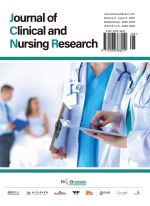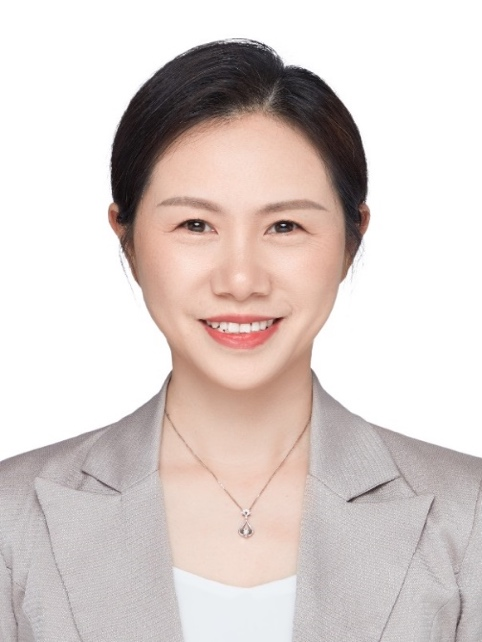Evaluating the Effectiveness of Chinese Herbal Footbath on Sleep Quality among Postpartum Women in Advanced Maternal Age
Abstract
This study evaluated the effectiveness of Chinese herbal foot bath therapy in improving sleep quality among postpartum women of advanced maternal age. A quasi-experimental design was used, involving 60 participants with sleep disturbances recruited from Zouping County Traditional Chinese Medicine Hospital. Participants were divided into control and experimental groups, and sleep quality was assessed using the Pittsburgh Sleep Quality Index (PSQI) before and after the intervention. The experimental group received Chinese herbal foot bath therapy, while the control group did not. Post-intervention results showed a significant improvement in sleep quality for the experimental group, with a mean PSQI score of 7.79 (SD = 2.90), compared to 13.45 (SD = 2.57) in the control group, indicating continued poor sleep. Statistical analysis confirmed that the therapy led to significant improvements across overall and component PSQI scores. The study concludes that Chinese herbal foot bath therapy is a safe, non-invasive, and cost-effective method to enhance sleep quality among postpartum women, especially those of advanced maternal age. It holds promise as a complementary treatment option and could be integrated into standard postpartum care practices to address sleep disturbances without relying on pharmacological interventions.
References
BJOG, 2018, Trends in Maternal Age and the Risk of Pregnancy Complications: An International Perspective. BJOG: An International Journal of Obstetrics & Gynaecology, 125(2): 148–156. https://doi.org/10.1111/1471-0528.14994
BMJ, 2019, Advanced Maternal Age and Pregnancy Outcomes in China: A Population-Based Cohort Study. BMJ, 364: l344. https://doi.org/10.1136/bmj.l344
Cao L, 2018, Psychological Stress and Sleep Quality in Advanced Maternal Age Women During the Postpartum Period. Chinese Journal of Maternal and Child Health, 33(4): 558–562.
China Sleep Research Association, 2018, 2018 China Sleep Quality Survey Report. China Sleep Research Association, Beijing.
Ding X, 2018, Correlation Between Sleep Disorders and Postpartum Depression in Advanced Maternal Age Women. Journal of Clinical Psychiatry, 28(6): 421–424.
Hu M, 2019, Trends in Maternal Age and Implications for Obstetric Care in China. Chinese Journal of Obstetrics and Gynecology, 54(3): 198–203.
Jiang Q, 2017, Fertility Intentions and Delayed Childbirth in China: Policy and Demographic Perspectives. Population Research, 41(6): 3–15.
Kolcaba KY, 2003, Comfort Theory and Practice: A Vision for Holistic Health Care and Research. Springer Publishing Company, New York.
Lean HH, 2017, Socioeconomic and Policy Drivers of Delayed Childbearing in East Asia. Asian Population Studies, 13(2): 123–138. https://doi.org/10.1080/17441730.2017.1334771
Li Y, 2021, Postpartum Psychological Health in Older Mothers: A Study of Sleep and Emotional Well-Being. Maternal and Child Health Care of China, 36(7): 1344–1348.
Chen J, Zhang J, Zhang W, et al., 2017, Vascular Changes and Hypertensive Disorders in Advanced Maternal Age Pregnancies. Chinese Journal of Perinatal Medicine, 20(5): 312–317.
Luo L, 2018, Policy Evolution and Maternal Behavior in China’s Two-Child Era. Journal of Chinese Women’s Studies, 5: 45–50.
Pan H, 2000, Psychological Responses and Maternal Behavior in Postpartum Women Over 35. Chinese Journal of Psychological Health, 14(2): 91–94.
Peng G, Zhang J, Liu Y, 2021, Prevalence of Postpartum Depression in Advanced Maternal Age: A Comparative Study. Chinese Journal of Psychiatry, 54(4): 278–284.
Peng R, 2018, Sleep Quality and Its Relationship With Depression in Postpartum Women. Chinese Journal of Nursing, 53(1): 45–49.
Schendel DE, 2017, Advanced Maternal Age and Obstetric Risk: A Global Perspective. The Lancet, 389(10080): 1330–1332. https://doi.org/10.1016/S0140-6736(17)30791-9
Wang L, 2019, Postpartum Depression in Chinese Women: Risk Factors and Prevalence Trends. Journal of Mental Health, 25(3): 198–204.


